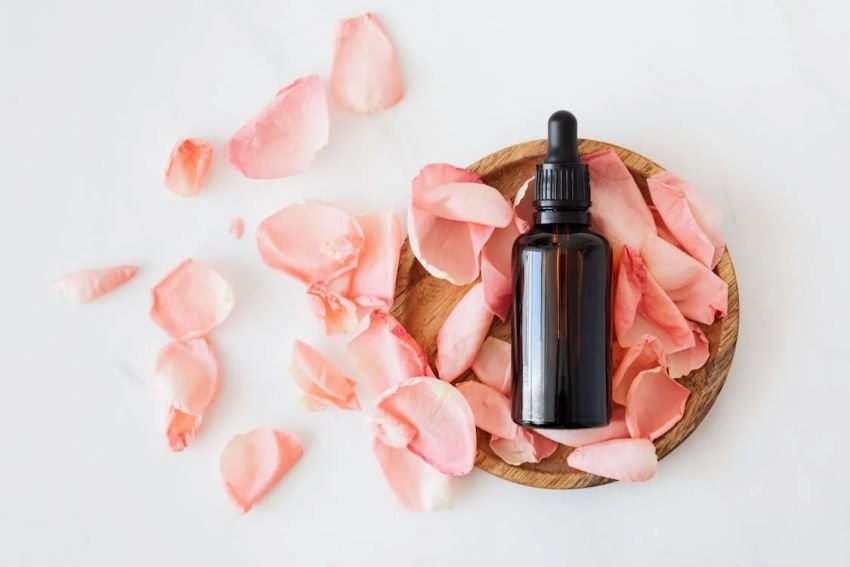People who are new to candle-making or those curious about candles might consider the use of perfume in a scented candle. If it’s the fragrance you want, can you put perfume in a candle for the right hit?
Many of us love the scents of perfumes and getting the same out of candles can be very desirable.
As a general rule of thumb, you cannot use perfumes in a candle. Perfumes aren’t meant to burn like the fragrance oils in candles.
Using perfumes for candles can have several risks, including fire. Some perfumes might emit toxic substances when burnt, while others might clog the wick of the candle.
The smart move is to use only candle-safe materials in a candle. Always keep in mind that candle-making is not a random act. It’s an art and science, much like perfume-making is.
Let’s get to the details of why perfumes and candles aren’t a good match.
Here’s Why Perfume Doesn’t Work In A Candle
1. Perfume Doesn’t Mix With Wax
During the process of making a scented candle, the fragrance is added to molten wax at specific temperatures depending on the type of wax. Perfume isn’t meant to be added to the hot and molten wax.
Perfume and wax don’t mix together. The mixture isn’t consistent and there are issues with the uniformity of the candle or even the capability of the mix to reliably function as a candle.
2. The Fire Hazard Of Alcohol In Perfumes

Carefully check the label of your perfume bottle. It’s very likely that there’s a warning sign on it, signifying the contents as flammable. Many would also contain advisories suggesting that they shouldn’t be used near a flame.
What do we learn from this? Perfumes aren’t meant to go anywhere near a flame. Obviously, this includes a candle flame as well.
Most conventional perfumes contain alcohol. The light and volatile alcohol does a great job carrying perfume and then quickly evaporates. Part of the reason it evaporates so quickly is its volatility.
This is also why it doesn’t belong in a candle. Alcohol would start evaporating the minute it’s out of a perfume container. This is problematic from a functionality point of view.
It can even lead to more serious problems, as alcohol is very flammable. There is a chance that the candle flame would become a hazard, even if it’s a small chance.
3. There Won’t Be A Good Scent Throw In The Candle
The primary reason why anyone would add perfume to a candle is to get a good scent, using the candle to diffuse the perfume. Assuming someone manages to overcome the problems and manages to make a scented candle with perfume, there’s still the problem of getting a good scent throw.
As we already know, alcohol is very volatile. Most perfumes use this alcohol to carry their sweet scents.
Once the candle is made, the alcohol would likely evaporate during the candle-making and candle curing process. Any remaining alcohol would disappear rather quickly as the wick lights up.
The result is that there is no carrier for the perfume. There won’t be a good scent throw from the candle. In fact, there is a chance that the candle won’t smell good at all. Perfumes aren’t meant to be burnt. Some perfumes might give out a terrible smell, or even toxic fumes when burnt.
The Lowdown
Considering the points here, it becomes clear that perfumes aren’t meant to be used with candles. There are better ways to make good scented candles. Sometimes, essential oils are used for candle making, though fragrance oils are the preferred choice.
Perfumes should not be used in candles.
Can You Use Perfume Oil In Candles? Some Things To Know

Okay, so perfumes are out of the question for candle making. But what about perfume oils? These oils don’t contain alcohol and have brilliant scents.
Before we answer this, let’s set the relationship status between scented candles and perfume oils to it’s complicated. Here’s why.
There Is A Problem With Terminology
Perfume Oil isn’t a well-defined term. It can mean different things depending on the seller, manufacturer, or largely anyone marketing this product.
So, it’s inherently difficult to get an exact definition of this product. So we’ll have to rely on conventional uses.
Conventionally, perfume oils are manufactured as fragrances that can be directly applied on the skin. Usually, this involves a fragrance concentrate mixed with a skin-safe carrier.
These first came onto the scene as perfumes that don’t need alcohol to be useful. They can be applied directly to the skin of the wearer and do not pose any adverse effects.
You’ll notice that this sort of usage of perfumes is old, dating back thousands of years. In the ancient world, people extracted the essence of fragrance from various plants and occasionally used them as perfumes.
But, in that sense, this is the same as diluted essential oils!
Then there’s the problem of what actually qualifies as a perfume oil. While some people insist that perfume oils must be wholly natural, others don’t mind if these oils have a synthetic origin.
For one group, an alcohol-free body-safe substance is enough to qualify as a perfume oil. While the other group insists that apart from the previously mentioned characteristics, the oil must also be of natural origin.
Keep in mind, this is a simplified discussion. The terminology problem with perfume oils is vast and often contradictory.
However, the scope of this discussion isn’t to weigh in on that debate; it’s to consider if perfume oils can be a good ingredient for scented candles.
To that end, the answer is in the negative. If we can’t verify the origin or composition of the perfume oil, it would be rather pointless to assume its ability to work with a scented candle.
The Basics Of Perfume Oils
With the terminology problem in mind, let’s look at a few characteristics that perfume oils have.
- Mix of a fragrance concentrate and skin-safe carrier like jojoba oil or coconut oil.
- The fragrance concentrate is diluted by the carrier to be skin safe. However, the percentage of this mix is usually unclear.
- Doesn’t contain any alcohol.
- Lack of uniform terminology means the perfume oil could be natural, synthetic, diluted natural essential oil, or even a synthetic fragrance oil!
Key Aspects For Why Perfume Oils Can’t Be Used In Candles
Scented candles are made from materials and ingredients specifically made for use with candles. Perfume oils can represent a wide variety of materials that may not play well with the flame or heat of a candle. Many perfume oils may not even mix properly with wax to form a suitable and stable combination for use as a candle.
Generally, perfume oils are considerably diluted to make them safe for use directly on skin. While this works great for use as a perfume, the dilution might be too high for use in a candle.
To put it simply, even if a perfume oil was suitable enough for use in a candle, there’s a good chance the hot throw would be weak, owing to the dilution of the fragrance concentrate.
Finally, it’s much easier and convenient to work with fragrances made specifically for use with candles. Fragrance oils made for candles and some essential oils suitable for candles provide excellent options for making fragrant candles that smell wonderful.
Perfumes And Perfume Oils Aren’t Meant For Use With Candles
As we learned from this discussion, even if we really love a scent, you cannot put perfume in a candle for scent. It won’t work as desired, and in some cases, can actually be dangerous. Perfumes generally contain alcohol, which is highly flammable and doesn’t play well with wax or heat.
Similarly, though perfume oils don’t contain alcohol, they aren’t really designed to work with candles either. Besides, “perfume oils” is too big and ill-defined a term to assess the suitability of its use in candles.
The better way to work with scented candles is to use candle-safe fragrances that are designed to work with candles.

